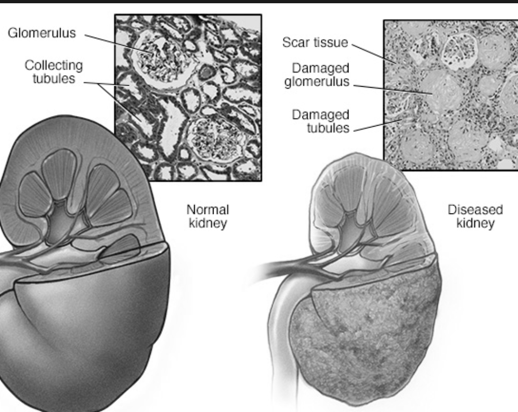 Photo: Getty Images
Photo: Getty Images
Hypertension is the technical term for high blood pressure. To have true high blood pressure, your readings must be at 140/90 mmHg or higher, whereas normal blood pressure is 120/80 mmHg and under.
If you fall into the range in between high and low (120-139/80-89 mmHg) you are considered pre-hypertensive. This comes with its own set of risks, much like a pre-diabetic had better be very careful not to flip into full diabetes.
Pre-hypertension numbers acts like the warning flag you need to see your heart and blood vessels are starting to become stressed. This is important for several reasons.
First, you can immediately start to do something about your situation especially as lifestyle factors contribute. Second, research shows that pre-hypertension increases stroke risk by 50 percent.
Third, blood pressure greatly influences your kidney function leading to kidney disease. Fourth, if you knew you could prevent cardiovascular disease by lowering your blood pressure, what is stopping you?
Many patients report their blood pressure is only high when they go to their healthcare provider’s office because of the so-called "white coat syndrome," where they are more nervous and therefore have worse numbers. It is important to understand that anytime you are nervous or stressed or upset your blood pressure probably shoots up to this higher level causing problems.
Therefore it is even more important in these situations that your baseline blood pressure be normal because if your baseline is pre-hypertensive (putting you at risk) and you subsequently become hypertensive in stressful situations, this puts a lot of pressure on your heart and blood vessels to keep up.
Besides blood pressure medication, which may or may not be appropriate for you, there are a number of lifestyle factors that contribute to increasing blood pressure.
First, the more weight you carry on your frame, the harder your heart has to pump in order to circulate your blood. Make weight loss a priority and watch your numbers fall back into normal.
Second, smoking has been shown to constrict blood vessels and weaken the heart muscle causing hypertension. Talk with your healthcare provider about a quitting program you can stick to and succeed.
Third, poor dietary choices that involve a lot of salt or caffeinated choices can worsen your blood pressure.
Fourth, a sedentary lifestyle (meaning you don’t exercise regularly) causes the heart to beat harder with each contraction because it is not used to physical exertion. If you become winded easily or find your heart rate racing when you climb one flight of stairs please start on a regular exercise program. Even something as simple as walking briskly (no trainer or fancy gym equipment needed) can be helpful.
Fifth, look at your sugar and fructose intake. It’s a well-established fact that diabetes worsens blood pressure but even those without diabetes (yet) who eat a high sugar diet are at risk. Switch to whole fruit in moderation and plentiful vegetables besides corn, peas, and potatoes.
Sixth, improve your sleep quality. You know how you feel after one terrible night of sleep? How about a whole week? Your heart and blood vessels feel the same way which causes an increase in your sympathetic nervous system (the flight or flight) raising blood pressure. Aim for seven to eight hours of solid uninterrupted sleep.
Seventh, work on stress reduction. Easier said than done, but moving your body out of that "fight or flight" all the time may do wonders for your blood pressure. Find activities that you enjoy and create calm in your life such as exercise, reading, painting, journaling, meditation (even just close your eyes for five minutes), playing with your animals, crafting, and building.
Don’t become a statistic. Pay close attention to your blood pressure and know that these seven lifestyle changes apply to both men and women.
Resources:
1) Prehypertension Linked to Increased Stroke Risk. Web. 3 October, 2011.
http://www.medscape.com/viewarticle/750592
2) Prehypertension: Is It Relevant for Nephrologists? Web. 3 October, 2011.
http://www.medscape.com/viewarticle/716770
3) Prehypertension Associated With Detrimental Heart Changes Even in Young People. Web. 3 October, 2011.
http://www.medscape.com/viewarticle/550473
4) Exploring the Link between Blood Pressure and Lifestyle. Web. 3 October 2011.
http://www.medscape.com/viewarticle/718111
Reviewed October 4, 2011
by Michele Blacksberg RN
Edited by Jody Smith






Add a Comment1 Comments
Beating hypertension is difficult, but my doctor recommended drastically cutting down the number of high cholesterol food as a preventative measure. Hypertension runs in my family and I'm not taking any chances!
http://www.thecholesterolscoop.com/food-high-cholesterol.php
October 9, 2011 - 4:11amThis Comment